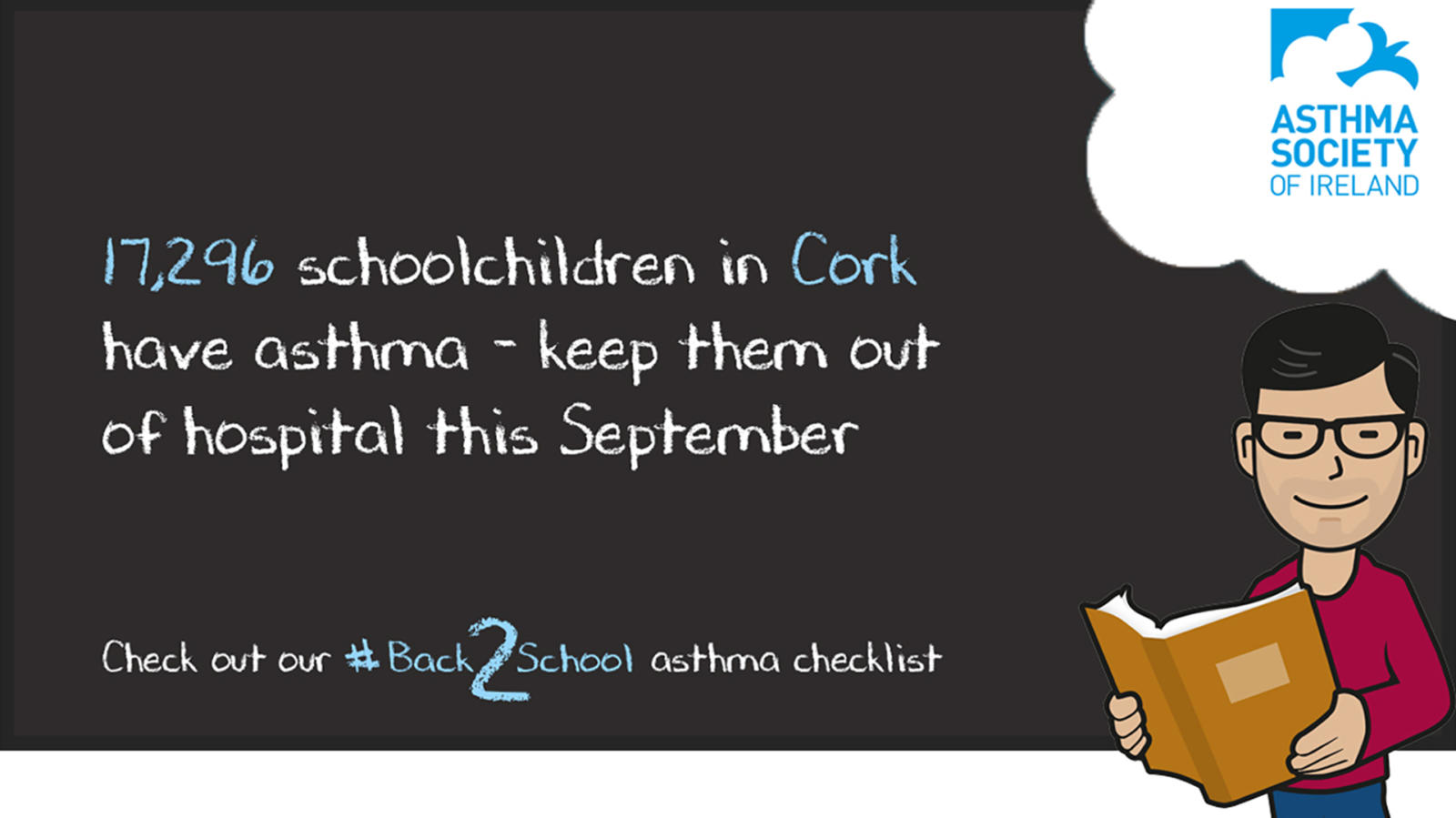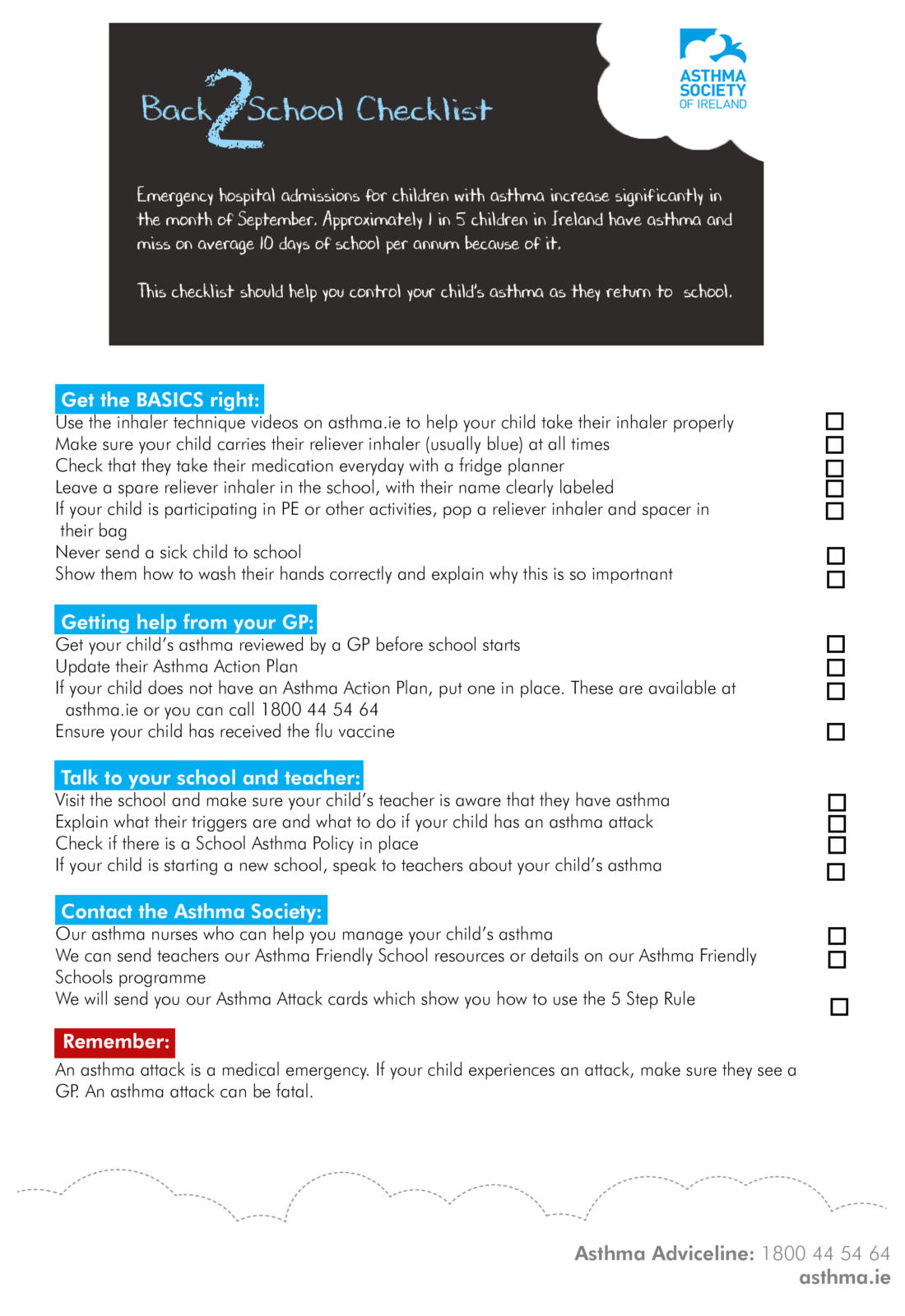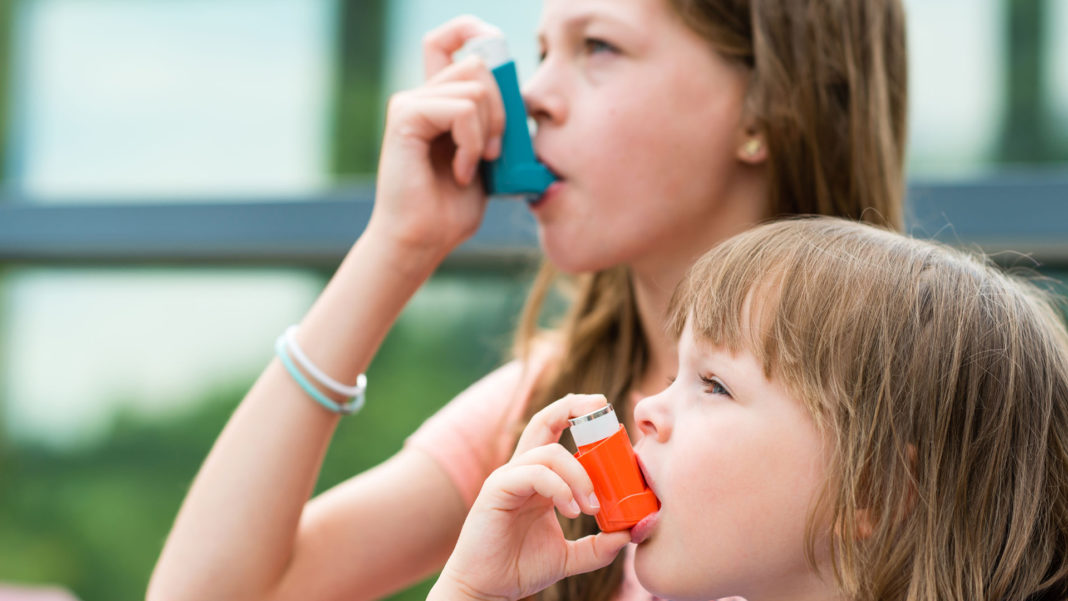By following simple steps, you cold lower your child’s chances of being admitted to hospital this September
The weather is changing, colds and flus are on the rise – add a new school or routine into the mix and it’s easy to see why hospital admissions for asthma increase so much at this time of year.
September is one of the toughest times of the year for people with asthma, especially children. Doctors see a spike in hospital visits and admissions in children, as a result of the ‘September Asthma Peak’.
Speaking about the importance of looking after your child’s asthma at this time of year, Sarah O’Connor, Asthma Society CEO, said:
“September is a dangerous time for children with asthma. Doctors see a huge increase in asthma attacks and hospital admissions for asthma, especially in children just back to school. An asthma attack is such a frightening experience, especially for young kids and a huge worry for parents in Cork. On average, children with asthma miss 12 days of school each year because of the condition but there are many practical things parents can do to keep their child out of hospital. We’re encouraging parents to follow our Back to School checklist to keep their little ones out of hospital.”
 Dr Marcus Butler, respiratory consultant and head of the Asthma Society’s Medical Advisory Group, expanding on the causes of the increase saying: “Every year there is an increase in the number of children in Cork being admitted to hospital for asthma after they go back to school. This is known as the September Asthma Peak – it’s related to the increased exposure to viral infection that happens at this time of year. Viral infections like colds and flu are related to 85% of asthma exacerbations in school-aged children.”
Dr Marcus Butler, respiratory consultant and head of the Asthma Society’s Medical Advisory Group, expanding on the causes of the increase saying: “Every year there is an increase in the number of children in Cork being admitted to hospital for asthma after they go back to school. This is known as the September Asthma Peak – it’s related to the increased exposure to viral infection that happens at this time of year. Viral infections like colds and flu are related to 85% of asthma exacerbations in school-aged children.”
“Some children will be at greater risk if taking their preventer medication regularly has slipped off the agenda over the summer. This can sometimes happen because a child is feeling well in the warmer months. It’s important to remember that preventer inhalers must be taken every day, as prescribed, to build up the protection in the airways that will keep asthma symptoms at bay. Forgetting to take your blue inhaler for weeks or months and only resuming it a few days before school starts doesn’t give the medicine enough time to build up and won’t do a good job at preventing asthma symptoms.”
“Make sure your child knows how to use their asthma medicines properly and understand why they must take them, even when feeling well.”
Dr Marcus Butler and Dr. Muireann Ni Chroinin, paediatric consultant, offered some top tips for keeping your child well this September:
- Parent and kids often fall out of routine over the summer and asthma adherence can fall by the wayside. It’s very important that during September families get back into a full good asthma management routine.
- Don’t send your child to school sick, as this will encourage the spread of viral infections.
- Taking inhalers should be a core part of daily routines. It should become as natural as getting dressed or brushing your teeth.
- Discuss an Asthma Action Plan for your child with your doctor, ahead of going back to school. It’s important not to rely on reliever inhalers (usually blue) alone when children have asthma, as reliever inhalers cannot stop asthma symptoms from occurring and won’t improve symptoms long term.
- Older children and teenagers often require extra supervision and cannot be relied on to self-medicate independently. Systems should be put into place to ensure they’re taking their medication properly.
Dr Muhammed Tariq, consultant pediatrician, also offered some advice for getting prepared for the school year:
- Visit your healthcare professional before school starts to answer any questions you have about your child’s asthma and to check their inhaler technique.
- Get a new Ventolin inhaler and spacer before school starts, if needed.
- Make sure your child’s teacher knows about their asthma and speak to them about your child’s needs.
- Put together an ‘asthma pack’ for your child, labelled with their name. This should include a Ventolin inhaler and spacer. Check with your child’s teacher that they’re comfortable giving your child their inhaler.
 It’s important to remember that an asthma attack is not a normal occurrence but a medical emergency. In the event of an asthma attack, follow the 5 Step Rule:
It’s important to remember that an asthma attack is not a normal occurrence but a medical emergency. In the event of an asthma attack, follow the 5 Step Rule:
- Stay calm. Sit up straight- do not lie down
- Take slow steady breaths
- Take one puff of your reliever inhaler (blue) every minute. Use a spacer if available.
People over 6 years can take up to 10 puffs in 10 minutes.
Children under 6 years can take up to 6 puffs in 10 minutes - Call 112 or 999 if your symptoms do not improve after 10 minutes
- Repeat Step 3 if an ambulance has not arrived in 10 minutes
If your or child have an asthma attack it’s important to see your doctor as soon as possible afterward to check your medication and ensure it doesn’t happen in future. An asthma attack is a medical emergency and can prove fatal. One person a week dies as a result of their asthma.












